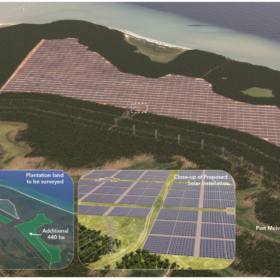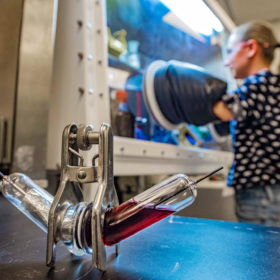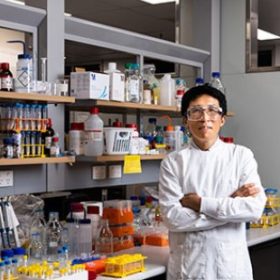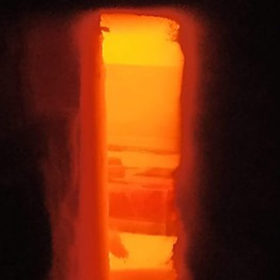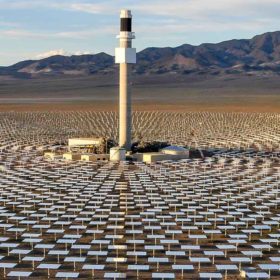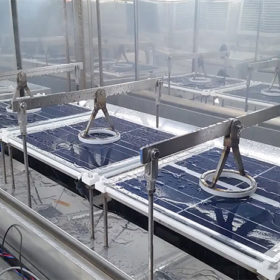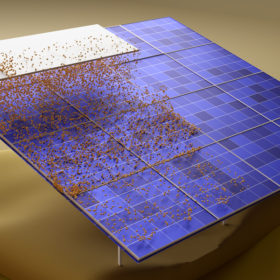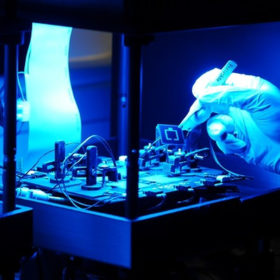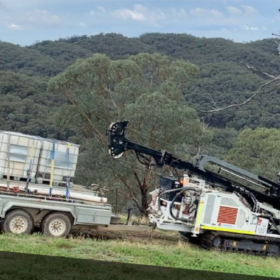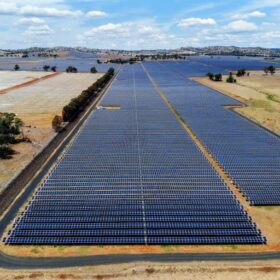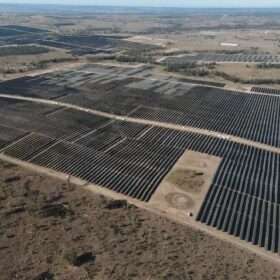University’s own PV plant plays host to study into large-scale solar’s impact on biodiversity
The University of New England’s own 3.2MW solar farm is proving its worth in more ways than one, not only as an independent renewable energy source for the university, but also as the setting of a pilot study to better understand the impact of large-scale solar on biodiversity. The study aims to learn whether solar plants are useful habitats for wildlife and if simple land management strategies during construction could better cater to native species.
2.8GW green hydrogen project in the NT gains key approvals, expands solar potential by a third
Western Australian company Global Energy Ventures has had several permissions granted for its 2.8GW green hydrogen export project on the Tiwi Islands, off the coast of the Northern Territory, including potentially increasing the acreage for its proposed solar farm.
Discovery of ‘structural earthquake’ in cathode formation may improve sodium-ion batteries 20-40%
Researchers at the Argonne National Laboratory in the United States discovered a degenerative effect in the creation of cathode materials for sodium-ion batteries that may have significant impacts on the performance of sodium-ion batteries.
UQ researchers promise lifespan boost for lithium-ion batteries
Researchers from The University of Queensland have developed a new nanotechnology that they say more than doubles the lifespan of high-voltage lithium-ion batteries, paving the way for higher density and lower-cost energy storage solutions.
Thermophotovoltaic battery could store energy at $14/kWh
Developed by researchers in Spain, the battery uses renewable electricity to melt low-cost metals such as silicon or ferrosilicon alloys to produce and store latent heat, which is in turn used by a thermophovoltaic generator to produce power. According to its creators, the device may store electricity at a cost of €10 per kilowatt-hour (AU$14.6/kWh) for a 10MWh system.
Concentrating solar power with heat storage could compete with batteries
For short-term storage in a 100% renewables grid, thermal energy storage located at concentrating solar power plants could compete with batteries, found a study using an idealised grid model. Seasonal storage needs could best be met with power-to-gas-to-power technology.
Solar PV with a 50-year lifetime
The US Department of Energy’s durable materials consortium is a multi-laboratory unit that stress-tests solar modules for durability. It seeks to extend the useful life of PV.
MIT scientists develop waterless PV cleaning system
Scientists from the Massachusetts Institute of Technology have developed a system that can be operated at a voltage of around 12V, with a 95% recovery rate for lost power after cleaning. The waterless system can be operated automatically via an electric motor.
Q Cells, German researchers claim 28.7% efficiency for 2T perovskite-silicon tandem solar cell
The Korean manufacturer and the German research centre were able to improve the performance of their jointly developed tandem solar cell by almost one percentage point.
Monash researchers announce lithium-sulphur battery breakthrough
Researchers from Australia’s Monash University have created a new generation of lithium-sulfur batteries that they say provides a cheaper, cleaner and faster-charging energy storage solution that outlasts lithium-ion alternatives and is rechargeable hundreds of times without failing.

